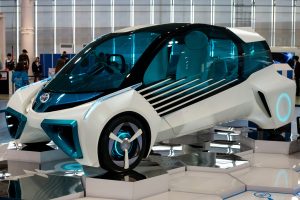Pros and Cons of Owning a Plug-In Hybrid
In recent years, plug-in hybrid vehicles have been gaining popularity as a more environmentally-friendly alternative to traditional gas-powered cars. With the rise of climate change awareness and the push for cleaner energy sources, plug-in hybrids are being hailed as the future of transportation. But like any new technology, there are pros and cons to owning a plug-in hybrid. In this article, we will delve into the advantages and disadvantages of owning a plug-in hybrid to help you decide if it’s the right choice for you.
The Pros of Owning a Plug-In Hybrid
1. Reduced Fuel Consumption and Emissions
The most obvious advantage of owning a plug-in hybrid is its lower fuel consumption and emissions. Unlike traditional gas-powered cars, plug-in hybrids can be charged and run on electricity, significantly reducing the amount of fossil fuels burned while driving. This not only saves money on gas, but also reduces carbon emissions, making it a more environmentally-friendly option.
2. Government Incentives
In an effort to promote eco-friendly vehicles, many governments offer incentives for individuals who purchase plug-in hybrids. This can include tax credits or rebates, making the initial cost of the car more affordable. In some areas, plug-in hybrid owners may also be eligible for reduced toll fees or free designated parking.
3. Convenience of Recharging
Unlike fully electric cars, plug-in hybrids offer the convenience of being able to run on both electricity and gasoline. This means that when the battery is depleted, the car can switch to using gasoline, allowing for longer distances to be traveled without worrying about finding a charging station. Additionally, many plug-in hybrids can be charged at home overnight, eliminating the need to go to a gas station.
4. Cost Savings in the Long Run
While plug-in hybrids may have a higher initial cost compared to traditional cars, they can save money in the long run. With lower fuel consumption and maintenance costs, plug-in hybrids can save owners hundreds or even thousands of dollars over the lifespan of the vehicle.
The Cons of Owning a Plug-In Hybrid
1. Limited Driving Range
One of the main drawbacks of owning a plug-in hybrid is its limited driving range on electric power alone. This can vary depending on the make and model of the car, but most plug-in hybrids have a range of around 30 miles on electric power before switching to gasoline. This may not be enough for daily commuters who travel long distances.
2. Higher Initial Cost
As mentioned earlier, plug-in hybrids typically have a higher initial cost compared to traditional cars. This may be a barrier for some individuals who are on a budget and can’t afford the added cost.
3. Limited Availability of Charging Stations
While many areas are making efforts to increase the number of charging stations available, they are still not as ubiquitous as gas stations. This may make it difficult for plug-in hybrid owners to find a place to charge their car while on the road, limiting their ability to travel long distances.
4. Higher Maintenance Costs
While plug-in hybrids may save money on fuel and regular maintenance, they may have higher maintenance costs for their electric components. This can include replacement of the battery, which can be a significant expense.
Conclusion
In conclusion, owning a plug-in hybrid has its own set of pros and cons. While it offers reduced fuel consumption and emissions, as well as potential cost savings, it may not be suitable for everyone due to its limited driving range and higher initial cost. As with any major purchase, it’s important to consider all factors and do thorough research before making a decision. Ultimately, the right choice will depend on your individual needs and preferences.










